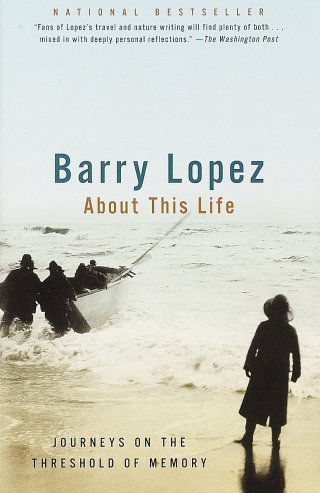“It is through story… that we can distinguish what is true, and that we may glimpse, at least occasionally, how to live without despair in the midst of the horror that dogs and unhinges us.”
We are self-contradictory creatures moving through a discontinuous world, glimpsing only fragments of reality. The hallmark of our species, the cost of living inside a consciousness so elaborate yet so self-limited, is that we know all this and yet we hunger for cohesion, for continuity, for pattern.
We call that hunger meaning.
We call it sensemaking.
We call it storytelling.
It is the great human implement that renders the world comprehensible to us and renders us comprehensible to ourselves. Its function is our shared inheritance; its form is the crucible of our difference: “Biologically, physiologically, we are not so different from each other; historically, as narratives — we are each of us unique,” the sage and sensitive neurologist Oliver Sacks observed as he considered the building blocks of personhood.
How that difference enriches our inner cohesion is what Barry Lopez (January 6, 1945–December 25, 2020) explores in the introduction to his enchanting essay collection About This Life: Journeys on the Threshold of Memory (public library).
Barry Lopez. (Photograph via the Barry Lopez Estate.)
Recounting how Cather and Faulkner and Hemingway awakened in him the reverence for story as a “powerful and clarifying human invention” when he was just learning to be a person in the world, Lopez writes:
I frequently met scholars and other insightful people from outside white, orthodox, middle-class culture. I didn’t consider that these people spoke a truth no one else possessed; but, listening to them, I saw the inadequacy of my education. It lacked any suggestion that these voices were necessary, that they were relevant… In the years after those first encounters with senior Native American men, itinerant Asian poets, black jazz musicians, and translators, I deliberately began to seek the company of people outside my own narrow cultural bounds. I was drawn especially to men and women who had not dissociated themselves from the passionate and spiritual realms of life, people for whom mystery was not a challenge to intelligence but a bosom.
In the human-nature counterpart to the evolutionary fact that diversity is nature’s wellspring of beauty and resilience, he adds:
The effect of these encounters was… an understanding that my voice, steeped in Jung, Dante, Heisenberg, Melville, and Merton, was not the only voice. My truth was not the one truth. My tongue did not compose a pinnacle language. These other voices were as indispensable to our survival as variations in our DNA.
Art by Mouni Feddag from A Velocity of Being: Letters to a Young Reader. (Available as a print, benefitting the New York public library system.)
Paradoxically, a diversity of perspectives gives our own humanity back to us, fortified and clarified. For however different the voices may be from each other, they all seek to express, to possess, to render real the same elemental truths and longings that pulsate beneath our human experience. Looking back on his early training in anthropological research and his immersion in various cultures over the course of his creative life, Lopez observes:
In all human societies there is a desire to love and be loved, to experience the full fierceness of human emotion, and to make a measure of the sacred part of one’s life… The most dependable way to preserve these possibilities is to be reminded of them in stories. Stories do not give instruction, they do not explain how to love a companion or how to find God. They offer, instead, patterns of sound and association, of event and image. Suspended as listeners and readers in these patterns, we might reimagine our lives. It is through story that we embrace the great breadth of memory, that we can distinguish what is true, and that we may glimpse, at least occasionally, how to live without despair in the midst of the horror that dogs and unhinges us.
Art by Dorothy Lathrop, for Walter de la Mare’s fairy-poems for children, 1922. (Available as a print and as stationery cards.)
This, of course, is what Chinua Achebe was affirming in his reflection on how storytelling helps us survive history’s rough patches, and Susan Sontag was affirming in her reflection on how storytelling transmutes factual knowledge into wisdom, and what Ursula K. Le Guin captured with her characteristic clarity when she observed that “storytelling is a tool for knowing who we are and what we want.”
This, too, is what Lopez places at the center of his gift to the world.
Looking back on his life — that narrative continuity stretching between the small boy in California obsessed with raising pigeons and the grown man who came to travel to Antarctica and the Galapagos, to make a body of work writing about Arctic seabirds and giant tortoises as a lens on the meaning of our human lives, and to make of this a body of work — he writes:
If I were asked what I want to accomplish as a writer, I would say it’s to contribute to a literature of hope. With my given metaphors, rooted in a childhood spent outdoors in California and which take much of their language from Jesuit classrooms in New York City, I want to help create a body of stories in which men and women can discover trustworthy patterns.
Every story is an act of trust between a writer and a reader.
Complement this meta-fragment of Lopez’s trustworthy and life-broadening About This Life with George Saunders on the key to great storytelling and Anton Chekhov’s six rules for a riveting story, then revisit the ever-insightful and underappreciated Rebecca West on storytelling as a tool for survival.
donating = loving
For a decade and half, I have been spending hundreds of hours and thousands of dollars each month composing The Marginalian (which bore the unbearable name Brain Pickings for its first fifteen years). It has remained free and ad-free and alive thanks to patronage from readers. I have no staff, no interns, no assistant — a thoroughly one-woman labor of love that is also my life and my livelihood. If this labor makes your own life more livable in any way, please consider lending a helping hand with a donation. Your support makes all the difference.
newsletter
The Marginalian has a free weekly newsletter. It comes out on Sundays and offers the week’s most inspiring reading. Here’s what to expect. Like? Sign up.




